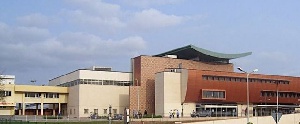The Narcotics Control Board (NACOB) has revealed that loopholes at Ghana’s ports present a huge impediment in the fight against narcotics.
Maame Serwah Owusu, an officer with the Professional Standards Unit of NACOB, has said the body had over the years tried to effectively fight against the importation and cultivation of narcotic drugs including cocaine and marijuana, however, the miscreants have taken undue advantage of the poorly secured entry points to flood the market with drugs.
Speaking on Ghana Yensom on Accra100.5FM on Wednesday June 14, Mrs Owusu said: “The porosity of our ports and other entry points has been a major challenge we are faced with in the fight against narcotics. The harbours, the airports, and the other entry points are weak and that is a challenge to us.”
She added: “These people are also using the post offices across the country to transport drugs in and out of the country and so we have also improved on our surveillance at the post offices in Ghana.”
Mrs Owusu said: “The proliferation of weed in Ghana is as a result of the fertility of the Ghanaian soil. Marijuana thrives very well in all parts of the country and so people engage in the cultivation a lot and that is why we have more of it on the market.
“When you compare it to cocaine, you will realize that cocaine is not that much on the market because it requires a lot of money to bring cocaine into the country.
“We are looking for the people producing the drugs and so we need information from the various communities on the people who are cultivating the drugs.”
She added: “The law is law, and so we need to operate within the law. Marijuana has been banned and cannot be legalised and so we are appealing to the general public to devote information to us on who and where the drugs are being cultivated for the security operatives to deal with them.
“If the production or cultivation is not done, people will not get it to consume and so we are looking for those cultivating, the barons, to arrest and so we are appealing to the public to assist us in this agenda.”
General News of Wednesday, 14 June 2017
Source: accrafm.com

















